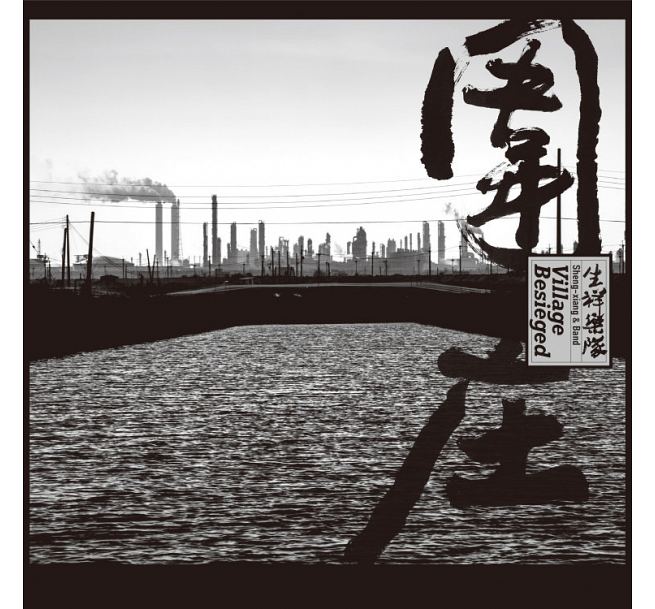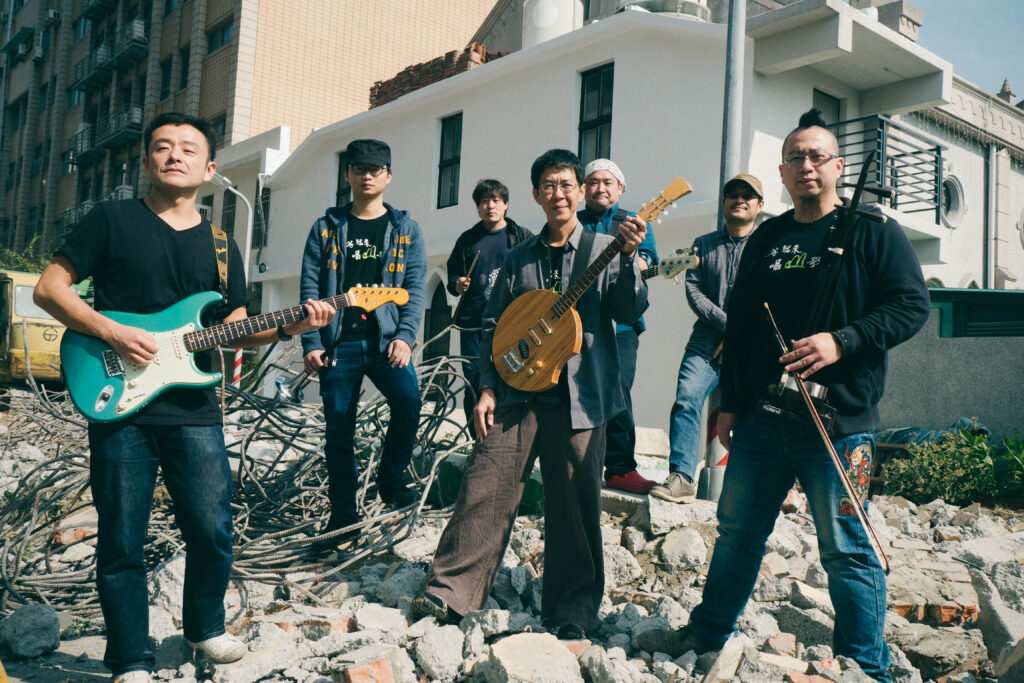Loretta Lou, University of Macau / London School of Economics
Even though it is becoming more and more common for musicians to take on the issue of environmental degradation in the age of Anthropocene, to produce an album about a particular kind of toxic pollution is literally unheard-of until Taiwanese indie rock band Sheng-Xiang & Band released ‘Village Besieged’, a double concept album that features 18 Hakka themed songs about the detrimental effect of Taiwan’s multi-billion-dollar petrochemical industry. Since its release in 2016, ‘Village Besieged’ has received critical acclaim and won many awards in both Taiwan and China, including the Golden Melody Jury Award and the Chinese Music Media Awards for the Best Band and Best Album Design.
Although Taiwan’s petrochemical industry has slowed down in the last decade due to growing competition from China and other emerging economies, Taiwan remains a global petrochemical powerhouse and the eighth largest ethylene producer in the world. According to a recent report, ‘in 2010, the total revenue from Taiwan’s chemical industries reached $135 billion, accounting for 29.3 percent of Taiwan’s overall GDP in the manufacturing sector’ (Hu and Chen 2012:41). Despite its economic importance, the petrochemical industry has brought enormous harm to the environment and nearby communities, giving rise to widespread resistance. In particular, protests against naphtha crackers, by which ethylene is produced, have propelled the development of Taiwan’s environmentalism since their emergence in the mid-1980s (Ho 2014:5).
Kaohsiung, for example, has been a petrochemical hub in Taiwan since the Japanese colonial era. Lin Sheng-xiang, a Kaohsiung native and the lead singer-songwriter of Sheng-Xiang & Band, observed horrendous environmental degradation in the area since the Kaohsiung refinery went into operation in 1947. As he said in an interview with the Initium Media: ‘Every time I’m on the train back to Kaohsiung, I see chimney after chimney as the train passes through Zuoying District. The smell, oh my, it smells like it’s going to explode if you lit a cigarette’ (Lu 2016).
According to Ming-Sho Ho’s research, the ‘first four naphtha crackers were state-owned and were built without visible opposition’ (Ho 2014:7). However, following the lifting of martial law in 1987, all subsequent naphtha-cracking projects evoked resistance in varying degrees (ibid), including the No.6 Naphtha Cracking Plant that became the focal point of Village Besieged. After witnessing an explosion in the No.6 Naphtha Cracking Plant[1] first-hand, Lin felt necessary to tell the world about the dangerous but all-pervasive petrochemical industry in Taiwan. As he sings in ‘Pollution Has No Passport’ (in Village Besieged, Disc 1): “All plants have nationalities, but pollution has no passport.”
Thanks to the sociological training of Chung Yung-feng, the lyricist of Sheng-Xiang & Band, many of the songs in the album resulted from field research and interviews with the affected communities. ‘Village Besieged’ is an elegy for victims of Taiwan’s Petrochemical Pollution. From villagers who were forced to leave their homes to families who lived near the Naphtha Cracking Plant and eventually died of cancer (see ‘Going Away, Not Leaving’ in Village Besieged, Disc 2), Chung was able to weave their stories into songs that speak to people across background (HKEJ 2016). Such work is unique and pioneering. At least in the Sinophone world, environmental issues are usually addressed and disseminated in writing or through visual media such as films and visual art. In comparison, music is a powerful but underused tool for engaging people in environmentalism. ‘Village Besieged’ is no doubt a milestone in the emerging genre of Chinese environmental songs.

Track list
| Disc 1 | Disc 2 |
| 欺我庄 Bullying Our Village | 答覆 Answer |
| 日曆 Calendar | 毋願 Not Giving In |
| 圍庄 Village Besieged | 農業學工業 Agriculture Learning From Industry |
| 南風 The South Wind | 藤纏樹 The Vine That Clings To The Tree |
| 污染無護照 Pollution Has No Passport | 出,不走 Going Away, Not Leaving |
| 慢 Slow | 坔地無失業 In The Marshes There’s No Unemployment |
| 宇宙大爆炸 The Big Bang | 戒塑膠毒 Quitting Plastic Poison |
| 拜請保生大帝 Calling For Guidance From The Guardian Of Good Health | 風入松 Wind in the Pines |
| 火神咒 Invocation Of The Fire Spirit | 動身 Moving On |
Furthermore, Sheng-Xiang & Band demonstrates a great potential of environmental songs for social mobilisation. Remarkably, ‘Village Besieged’ was an entirely crowdfunded project. Within two months, the Band raised NT$ 2,641,705 New Taiwan Dollars (approximately €74 thousands euro) from 2555 donations (FlyingV 2016). The donations allowed the Band to have complete control of the album without worrying too much about the commercial side of things. The success of Sheng-Xiang & Band proves that with the combination of excellent music, a timely topic, and a government tolerant of dissent, protest songs will go a long way in the Sinophone world.
[1] For more about Taiwan’s Naphtha Cracking Plants resistance, see Ming-sho Ho (2014). Resisting Naphtha Crackers: A historical survey of environmental politics in Taiwan, in China Perspectives.
Main image photo credit: Foothills Folk
